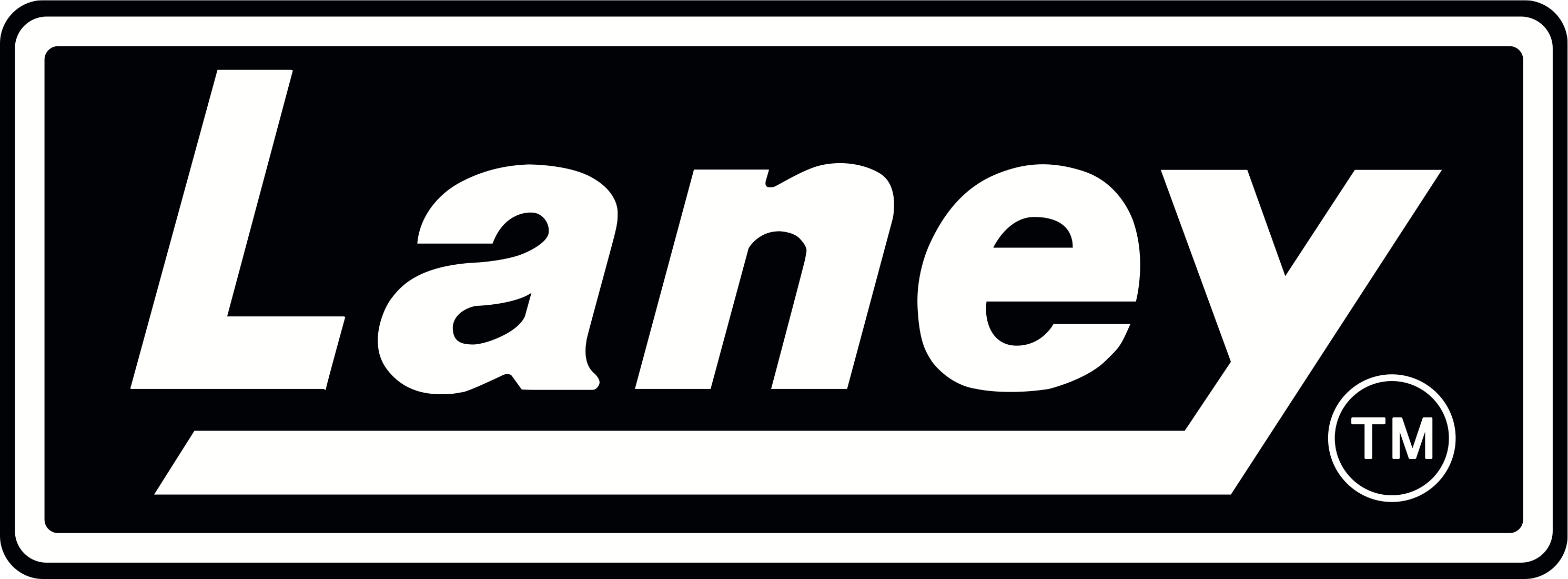“It’s capable of being terrifyingly loud. When we launched the LFR-412 at NAMM 2024 we couldn’t turn it up beyond 2”: How Laney brought volume and best-in-class tone for digital rigs with the world’s loudest active guitar cabinet
Developed with a little help from Devin Townsend and Guthrie Govan, the LFR-412 is the first active 4x12 for digital rigs, giving players old-school power and volume to make their amp modeler sing
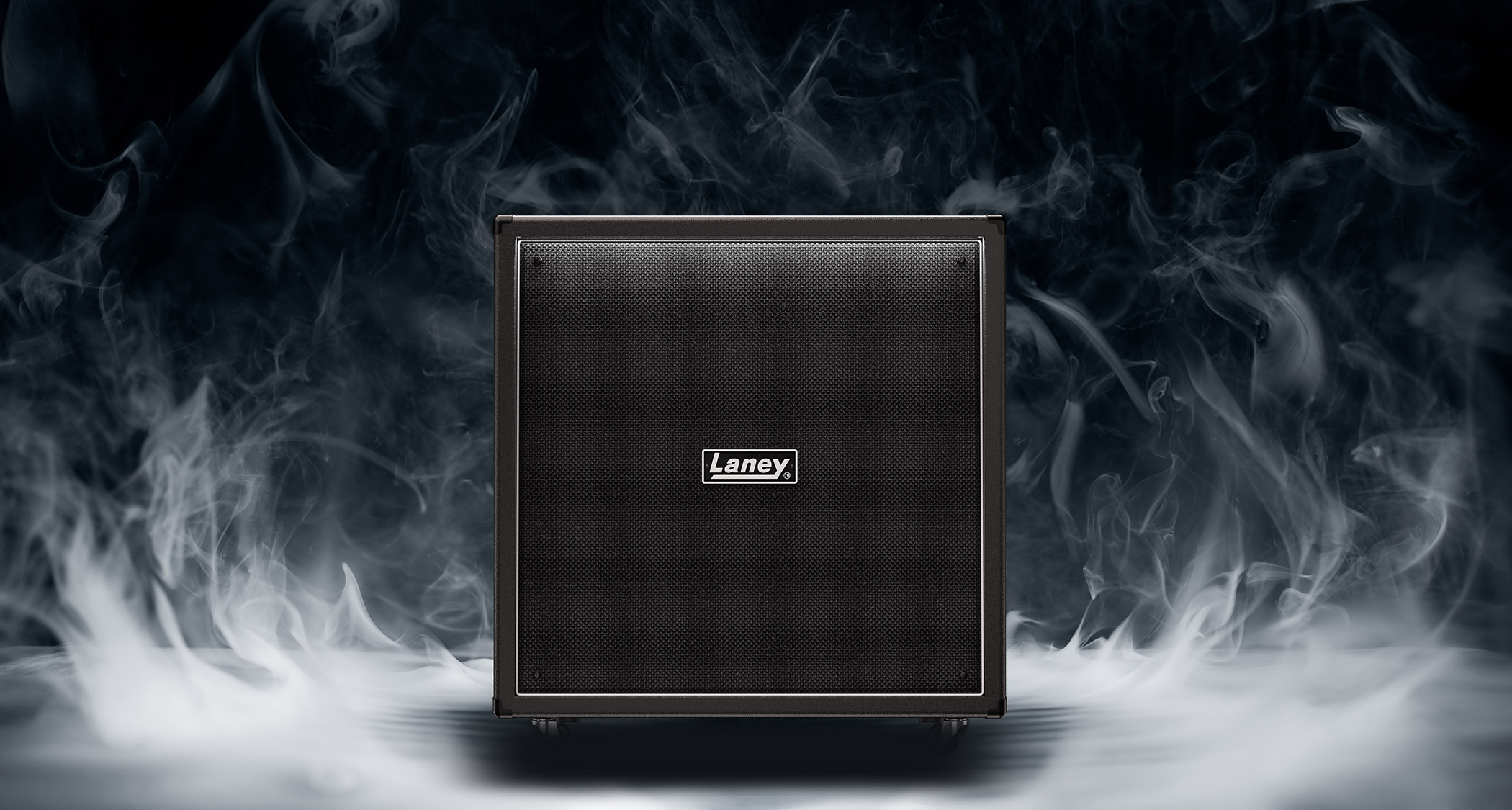
The digital amp modeler has transformed our relationship with the electric guitar, presenting players with hundreds, if not thousands, of sounds to work with, but the fundamental truth remains that part of the appeal of the instrument is experiential – hitting the strings and pushing air out of the speaker.
Volume was front and center of Laney’s thinking when desinging the LFR Active guitar cabinet series, a groundbreaking range headlined by LFR-412, the world’s first 4x12 FRFR guitar cabinet, which, at 2,600-watts, is also the most powerful of its kind in the world.
Laney had fun with the launch, noting that LFR-412 is almost as loud as a jetplane at takeoff. Lee Wrathe, head of marketing, at Laney, admits this feat of audio engineering presented its own problems when introducing it to the world.
“It is capable of being terrifyingly loud,” he says. “When we launched the product at NAMM 2024 we couldn’t turn it up beyond 2 on the volume dial for fear of being shut down by the noise police. On the last day, we asked our good friend Mr Shred of Masters of Shred fame to turn it up to 6 and we had to go downwind and warn all of the other booths.”
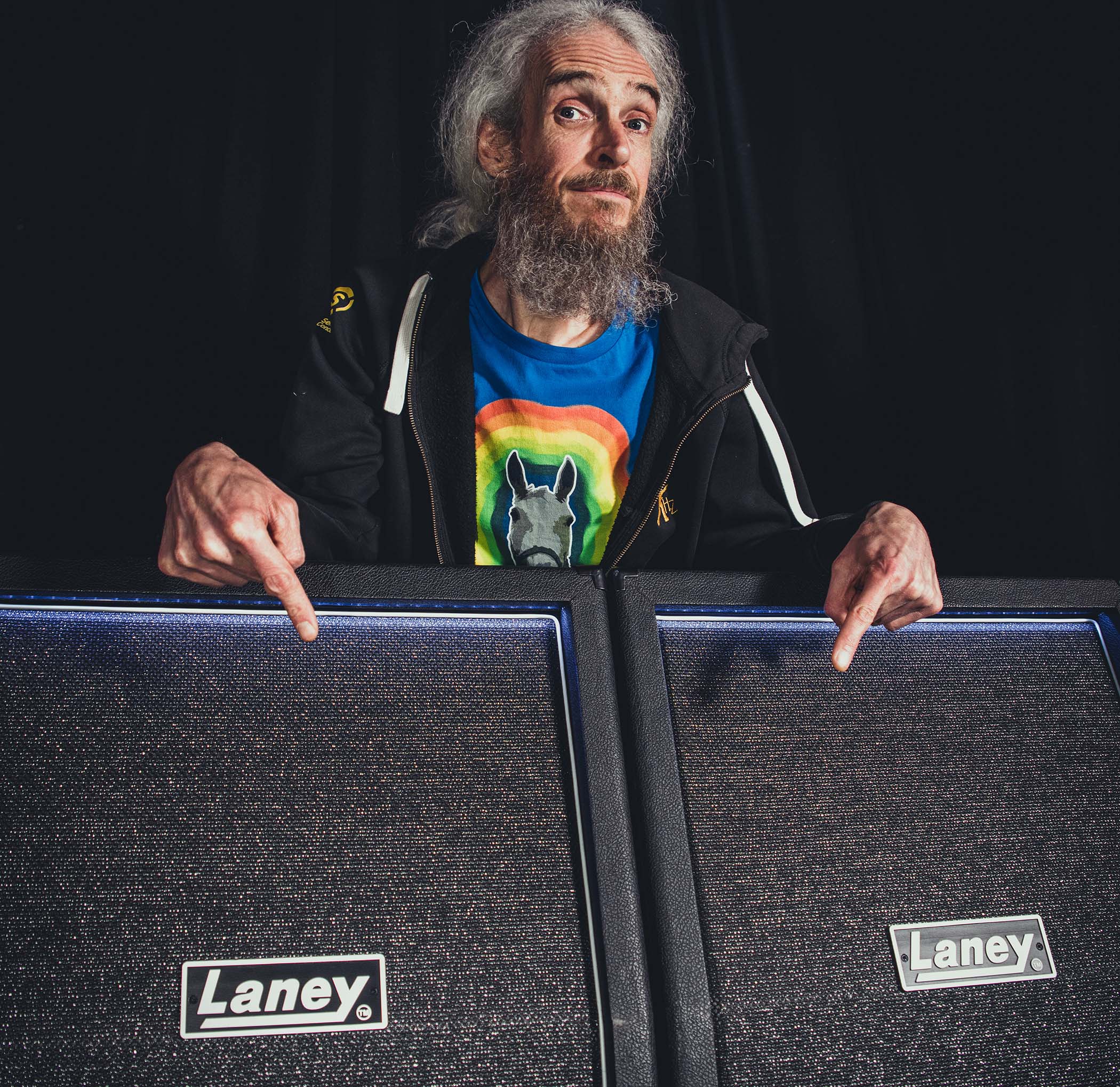
Analog die-hards are taking notice. This is part of Laney’s thinking. Whether you used a floor-based modeller or plugins, the LFR series is designed to give your digital rig lungs, to take that “in-the-box” sound and make something physical of it, to make it behave like a quote/unquote real amp and cabinet.
Once Guthrie had an opportunity to try a pair of LFR cabs whilst on tour in Japan, he was blown away
Lee Wrathe
“Let’s say someone has a Neural Quad Cortex and they have created their entire signal path, effects, amp, Impulse Response etc in a single patch that they simply want to amplify,” says Wrathe. “Running that into a tube amp would drastically color the tone, so that’s not a great option.
“Secondly, running the signal into a standard PA with a monitor on stage doesn’t allow the player any interaction with a key part of their live tone… The feel of a real guitar cabinet.”
All the latest guitar news, interviews, lessons, reviews, deals and more, direct to your inbox!
Feel is everything. This is why Guthrie Govan gave the LFR series his seal of approval, using them with his Fractals onstage with the Aristocrats. “Once he had an opportunity to try a pair of LFR cabs whilst on tour in Japan, he was blown away and exclaimed, ‘At last! Real feedback!’” says Wrathe.
Laney’s approach started with the speaker, and it was clear from the outset that it had to design something new. An off-the-shelf driver would not be able to articulate the tone of the guitar itself and the frequency response of a digitally emulated speaker cabinet.
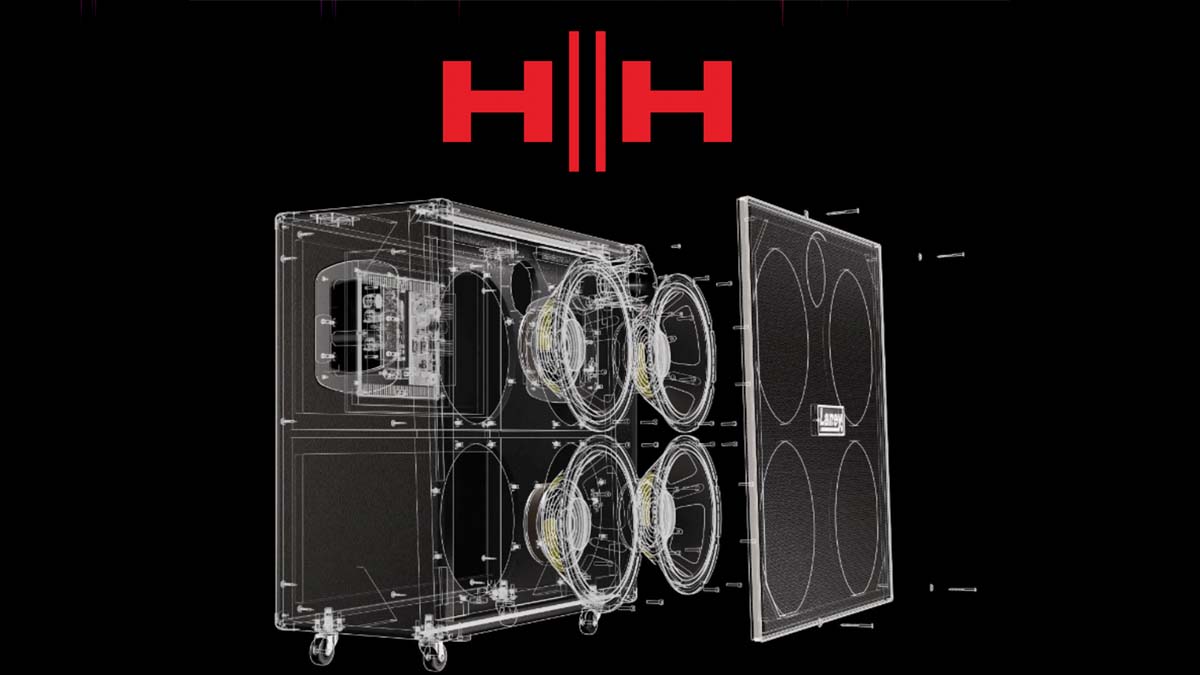
“The challenge was to design a driver that was perfectly balanced to deliver both outcomes,” says Wrathe. “We designed the driver from the ground up. At Laney HQ we are truly blessed with a wealth of experience in the design and production team.
“One of our top boffins worked at Celestion and was involved in the design of some of the iconic drivers we all know and love. He absolutely pours over every detail of the acoustics of both the drivers and the cabinet construction.”
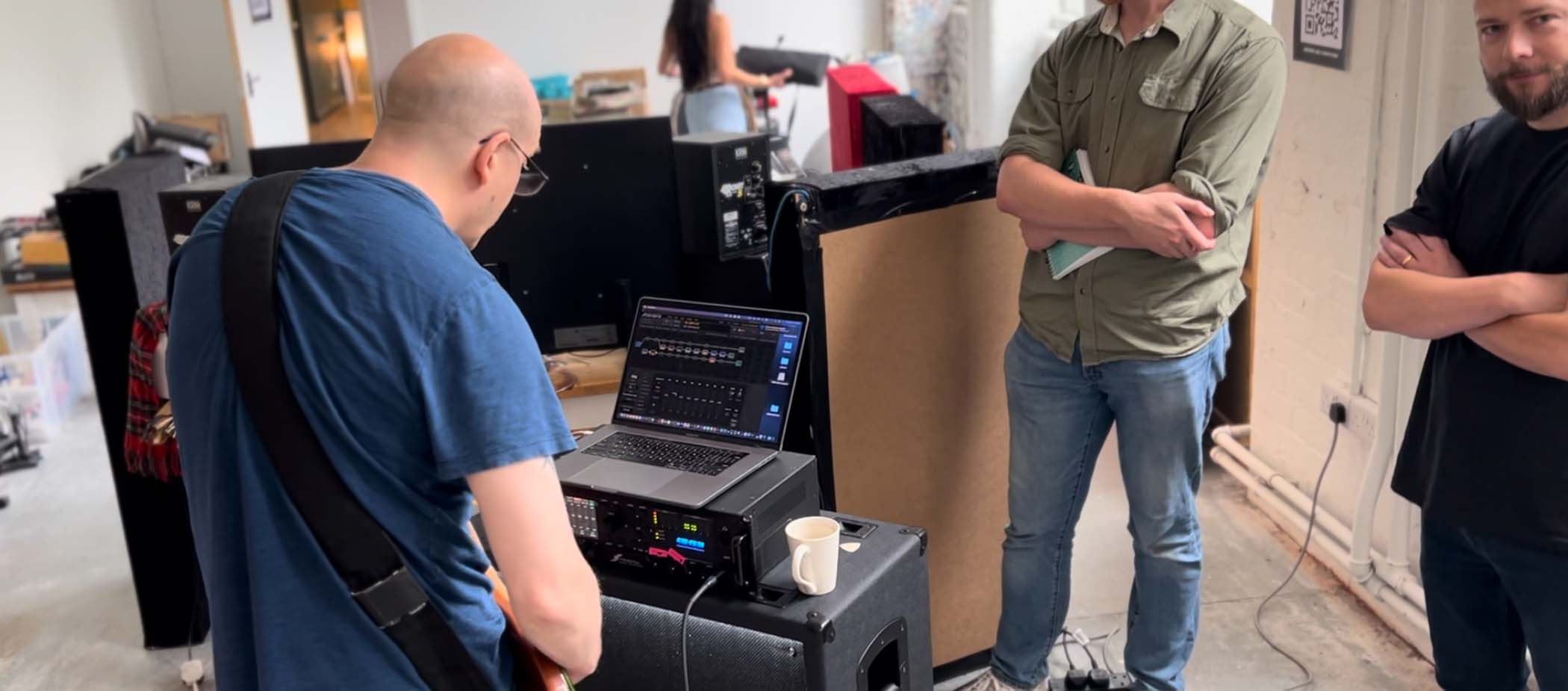
Leaning on its onsite expertise and that of its sister company, HH Acoustics, Laney’s design team developed the HH Black Series professional 12” woofer, complementing them with the LaVoce compression driver. These could faithfully articulate all the frequency information in even the most complex digital signal, all the nuances that contribute to the feel of your rig.
Laney had help from artists, too. Devin Townsend was an early adopter and sounding board. The sweeping dynamics of his progressive metal guitar tone made the perfect crash test dummy. He uses a pair of 1x12 LFR-112 cabs “for ambient tones”, and the 800-watt LFR-212, but was particularly excited by the prospect of a 4x12.
“It’s just an iconic part of any player's rig and nothing moves the air quite like it and it was something he missed when using a digital rig,” says Wrathe.
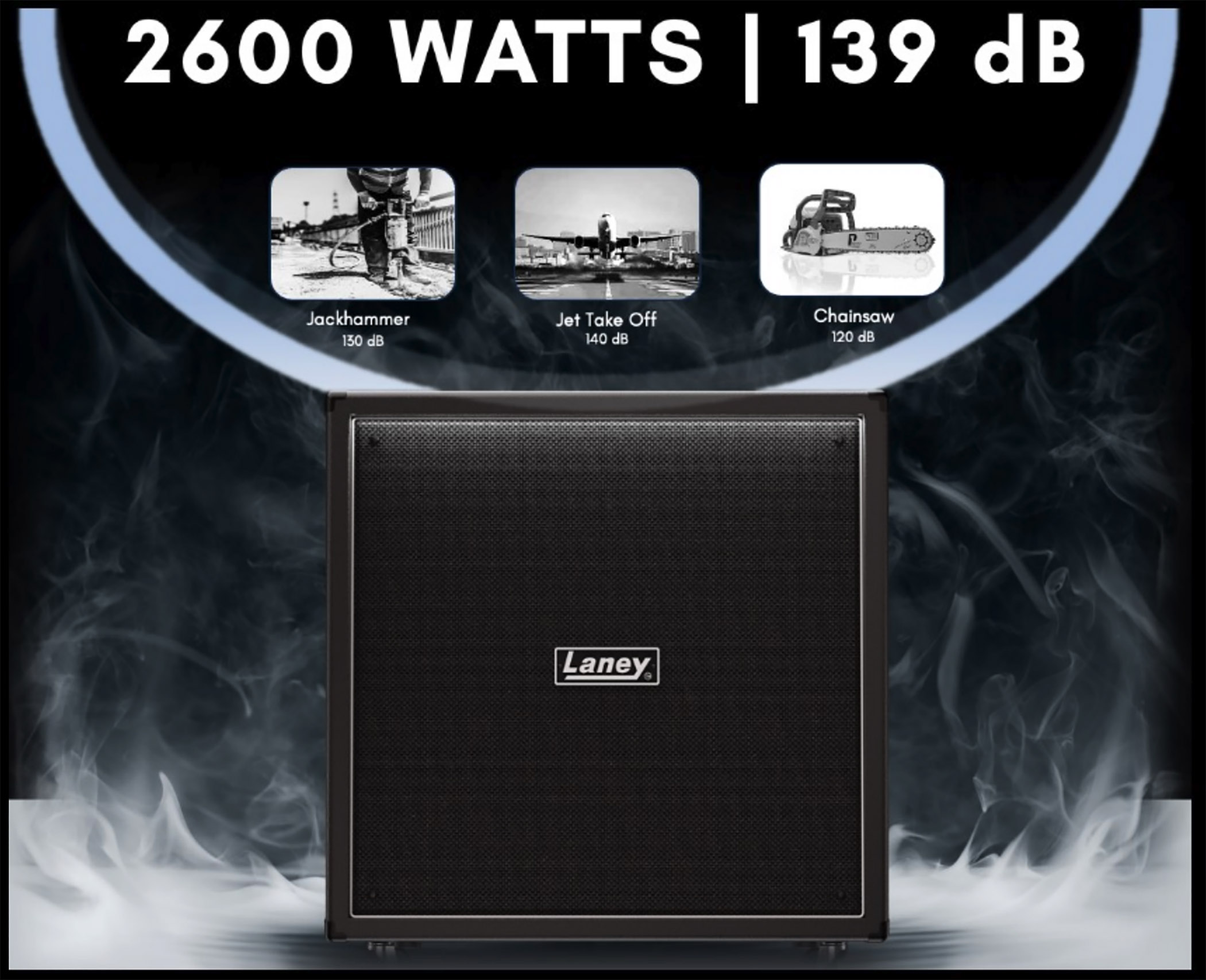
Townsend subjected it to “brutal testing” and ultimately designed two IRs that ship with the LFR-412. Which brings us to the LFR’s ace in the hole: IR-handling.
Not only can you store IRs on the cab, you can split them, sending one through the PA, another through the speaker, so there is no compromising between onstage tone and PA mix. The LFR Active guitar speakers might be real but they can still do the unreal.
Visit Laney to find out more.
Jonathan Horsley has been writing about guitars since 2005, playing them since 1990, and regularly contributes to publications including Guitar World, MusicRadar and Total Guitar. He uses Jazz III nylon picks, 10s during the week, 9s at the weekend, and shamefully still struggles with rhythm figure one of Van Halen’s Panama.
